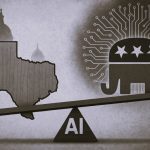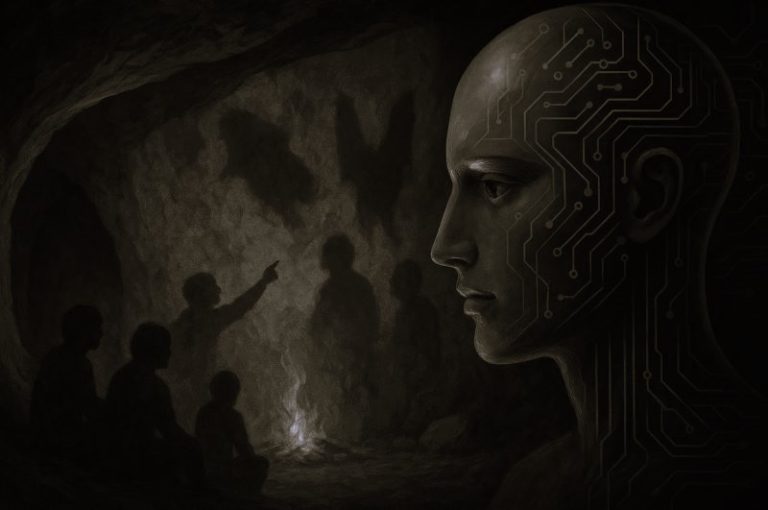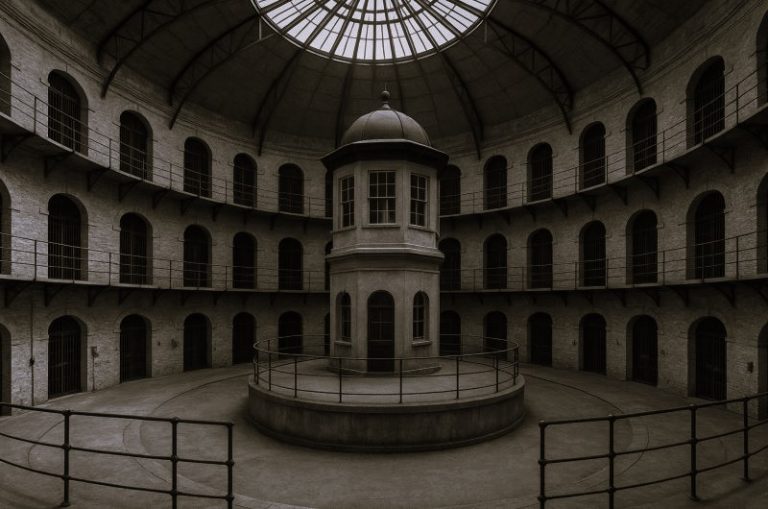


By Dr. William Lee Miller
Late Professor of History
University of Virginia
Abraham Lincoln is the greatest of all interpreters of America’s moral meaning. He surpasses even Thomas Jefferson, though Lincoln himself might take exception to my claim. [1]
Lincoln certainly gave Jefferson high praise, and he made constant use of the Declaration of Independence as the magisterial concentrate both of his own political philosophy and of the moral essence of this nation. You can’t be more unstinting in your affirmation of the personal and national significance of a particular document than Lincoln was about the Declaration of Independence in Lewistown, Illinois, on August 17, 1858, on the way to the debates with Douglas, and in Independence Hall in Philadelphia, on February 22, 1861, on his way to becoming the president of the United States. Lincoln praised the Declaration to the skies, and referred to it, in shorter passages, on dozens of other occasions. One might be tempted to say—and Lincoln himself might say—that all that he did was to use, affirm, reiterate, and apply what Thomas Jefferson had written in his drafting project four score and some years earlier at Eighth and Market in Philadelphia.
But Lincoln did something more, and something more not only with respect to the abstract content of America’s unique moral self-definition, but with respect also to its tone, its function, and its application. Lincoln was a particularly worthy interpreter of America’s moral meaning, in the first place, because he stated it with a rare eloquence. Secondly, he was the primary voice giving the American idea received from the founders its necessary reinterpretation and fresh critical application because he dramatized the centrality of equality—specifically racial equality—as part of the nation’s essence. And in doing those things, he was able, to an unusual degree, to avoid the bane, scourge, curse, and disease that threaten all human statements of moral claims and national ideals—self-righteousness, invidiousness, moral pride, and condescension.

Lincoln personally was that rare bird, a man who dealt in moral ideas without falling into moralism; who spoke about what is righteous without himself claiming, or being perceived to have claimed, a superior righteousness himself; who argued for justice without provoking in his hearers the sort of reaction Athenians had, when they couldn’t stand it anymore to hear Aristides always called Aristides the Just. And by writing and speaking and thinking carefully, Lincoln was able to deal with his nation’s moral essence in the same spirit and with the same result.
My claim about Lincoln could be pelted with objections from many sides. But two objections are of particular interest because they tend to deny, not the first or second, but the third and most distinctive of my claims. Reinhold Niebuhr, in one of the last things he wrote, an opinion piece in The New York Times on December 10, 1970, characteristically challenged the American illusion that we were some kind of a redeemer nation, different from and categorically better than other nations. Niebuhr lined up in front of his rhetorical firing squad a parade of presidents who, he charged, joined in the American chorus thanking God that we are not as other nations. Richard Nixon, then in power, was a particularly easy target for his criticism, as was Thomas Jefferson, who at the beginning of the republic declared the United States a unique redeemer nation, and Woodrow Wilson, who surrounded U.S. participation in World War I with exalted claims of America’s superior idealism. Included in his list was, surprisingly, Abraham Lincoln. Niebuhr singled out Lincoln’s description of the American government as “the last, best hope of earth” and said that Lincoln’s use of that phrase “repeated the obtuseness of our founding fathers to the continued growth of free societies in Western Europe, in the form of parliamentary democracy under the aegis of constitutional monarchy.”
Lincoln, like the American founders, said Niebuhr, was “obtuse” in failing to see that there were developing in Europe other potential centers of the human hope for free and popular government. A particularly severe Niebuhrian critic might say the United States wasn’t the last hope of earth, and may not even have been the best.
To my chief mentor, Reinhold Niebuhr, I would argue that in 1862 it was not yet all that clear that nations of Europe would develop lasting democracies; that there were in Europe still then, and would be for some time to come, considerable bodies of opinion—the 48ers, for example, not long before Lincoln spoke, and a new wave of immigrants like Mario Cuomo’s parents later—that did indeed look westward across the Atlantic to America as the world’s democratic hope; that, as to those constitutional monarchies, the American founders had made a point of getting rid of kings and nobles, and an American could still be democratically wary of societies in which there was a remnant of hereditary privilege in a monarchy, even if it were constitutional; and that the content of the American moral ideal, for Lincoln as for many of his countrymen, was social and economic as well as political, and had to do not only with representative government but with the openness of society and the absence of the barriers of class.[2]
Furthermore, consider Lincoln’s allegedly objectionable phrase in its context. The phrase “the last, best hope of earth” appeared in the remarkable ending to Lincoln’s second annual message to Congress in December, 1862 (after the preliminary and before the final Emancipation Proclamation), in which he argued for graduated emancipation. The whole passage in which the phrase appears, the graceful three-paragraph ending of this message, is a sober appeal to change our thinking and ourselves and to alter our national condition—to “disenthrall” ourselves, to put aside the “dogmas of the quiet past” because they are “inadequate to the stormy present”; to “rise with the occasion” because “the occasion is piled high with difficulties”; to “think anew, and act anew” because “our case is new.” This appeal to think and to change is addressed in a most direct, grave, and portentous manner to his fellow national leaders, who, with him, cannot escape history, who, with him, must pass through this fiery trial, and who, with him, will be remembered in spite of themselves. “We know how to save the Union,” Lincoln said, and the world knows we know. We have, Lincoln interjected for emphasis, “even we here” have—the power and the responsibility. The phrase, “the last, best hope of earth” then occurs as the profound description of that which we here now may by our actions “nobly save, or meanly lose.” That is the context in which Lincoln refers to this nation as the last, best hope of earth—in an appeal and a warning to American leaders not to act so as to “meanly lose” this precious human hope entrusted to them.
And how might those leaders nobly save, instead of meanly losing, this best hope for the world? By a radical change in the nation’s institutions. By giving freedom to the slave, which would also assure freedom to the free, “noble alike in what we give and what we save.” Noble, that is, if we do it, something not yet done.

The phrase, with its two superlatives—last, best—has the effect, in context, not of encouraging an egotistical national complacency or sense of superiority, but of adding weight and sober meaning to the serious choice American leaders had then to make. The passage would not have been improved had Lincoln written something more modest—if he had described what was a stake as, for example, one of the few fairly good hopes, or, one of the somewhat better hopes, of earth. As it stands in its setting, it is a long way from sheer national boasting, obtuse or otherwise.
What about the Gettysburg Address? The Italian-born editor and publisher of a magazine I once worked for wrote one of the few editorials critical of John F. Kennedy’s “Ask not what” inaugural address. Upon his first visit to the White House he was immediately challenged for writing that editorial by none other than President Kennedy himself. The publisher (Max Ascoli) had the wit to respond, “Mr. President, the problem is not with your address, but with the genre” (meaning the overstatement and grandiosity into which presidents are tempted on solemn rhetorical occasions). Mr. Kennedy, not a man to mince words, shot back, “What about the Gettysburg Address?” “Yes,” Ascoli said, “that is another example of what I mean. The American civil war was said to be testing not just whether this nation can long endure, but whether any nation so conceived and so dedicated can long endure. We are to resolve not just that this nation’s government of, by, and for the people shall not perish, but that such government shall not perish from the earth—as though the whole history of liberty in the entire globe depended upon what happened in this one young republic.” We could argue about the historical situation—whether the United States did, in 1863, indeed, still represent something of a world test for popular government on a large scale. But again, setting that aside, let us look at what Lincoln was doing in context.
Abraham Lincoln was not the editor-publisher of a liberal magazine making fancy critical points to his self-selected readership, or a theologian-preacher thundering away at the nation’s sins and defects, or a philosopher capturing timeless ideas in his closet, or a Boston literary man bravely striking postures beside his pond for a handful of readers.
Lincoln had the rhetorical obligations of an American president. He was obligated to be moral rhetor to the whole nation. The key to being a rhetor—one who persuades—is always the audience. To whom is the rhetor speaking? Does the rhetor find a point of meeting, a commonality, between himself and his audience to try to bring them along to his point? The question about the utterances of presidents—Abraham Lincoln, John F. Kennedy, James K. Polk, Bill Clinton—is how well they perform their particular highly constrained rhetorical obligation—to address the whole people of a nation that has, out of its past, a very high moral concept of itself. A president does not fulfill his rhetorical obligation by higher criticism, nihilism, skepticism, cultural relativism, disinterested philosophical speculation, or exercises in deconstruction of national ideals; he works within a received and given set of national myths and ideas. The question is, What does he do with them?
Now back to the Gettysburg Address. It is true that Lincoln made those universalistic claims, but not invidiously. Not as national boasting. Not as a claim of superiority. Lincoln’s treatment of America’s role in the moral history of the human race is rather that a great possibility and hope for all peoples has been entrusted to us Americans: The question is, what will we do with it?
If we were to try to match biblical references with Reinhold Niebuhr, we might say that the applicable text, for Lincoln’s sense of America’s role, is not what Niebuhr attributed to his whole basket of presidents, the pharisaic “we thank thee God that we are not as other nations,” but rather the demanding injunction of Jesus included in Luke: “For unto whomsoever much is given, of him shall much be required.” Or even, if we think ahead to the next to last paragraph of the Second Inaugural Address, the severe word of the Prophet Amos, Yahweh speaking to Israel: “Ye only have I known of the people of the earth—therefore will I punish you!”
Think again about the Gettysburg Address. Although it includes sweeping phrases about America’s worldwide significance, Lincoln’s point is that this moral significance is not fully realized and is undergoing a test. When he appealed to his hearers’ resolve that there be a new birth of freedom, a Democratic paper responded, “what was wrong with the old birth of freedom?” That makes the point. Though there certainly was a large claim about the nation’s possible moral significance for the world, the practical application was that it hung in the balance. The nation needed to be changed in order to fulfill that promise. The living should be dedicated to the unfinished work, to the great task before us. Our high resolve should be that this nation have, not the old freedom only, but a new birth of freedom.

If we grant that Lincoln did indeed view the United States as distinctive among nations, perhaps even unique, and saw that distinctiveness or uniqueness in a broad sense in moral terms, we should nevertheless add that he saw his country as morally distinctive not in achievement or virtue, or necessarily in conduct, but in its central idea—its aspiration, political and social form, responsibility, and possibility. He did not reinforce either a complacent or an aggressive collective egotism, or evoke a closed, haughty, superior tribal nationalism.
Before returning to Lincoln’s use of the Declaration in the 1850s, let us examine an earlier instance, in the 1840s. Lincoln’s romantic Americanism did not mean he would derive from it a right or a duty to impose this nation’s will on others, or conclude from it that this nation in every conflict with another was altogether in the right. When Lincoln first went to Washington as a congressman in 1847, his first formal participation in the national government was his listening to the clerk reading the annual message of the president, and he was clearly appalled by what he heard. No one in the room—certainly including the new Whig congressman himself—could then have guessed that, just fourteen years later, he would himself be delivering a presidential message. But one could certainly have guessed that, if that happened, Lincoln’s message would be very different from that of James K. Polk.
To read Polk’s message is to see why. The most salient characteristic of Polk’s long and carefully worked effort in 1847, with Lincoln listening, was its relentless, prolix, and total self-righteousness—both for the nation, and for the administration. After an utterly complacent introductory assertion of this nation’s superiority in general, Polk then proceeded to specify at length this nation’s moral superiority in particular regarding the war with Mexico. He blamed Mexico entirely and at every point for the war: not just for that alleged first shedding of American blood on American soil, thereby bringing on the war, but also for wanton violations, bad faith, and insults before the war began, and for insincerity, accepting unreasonable terms, and a refusal to negotiate afterwards. Mexico was always wrong. And the United States (and the Polk administration) were always altogether in the right: forbearing, generous, reasonable, and offering liberal terms. Congressman Lincoln would note in his criticism of the speech that President Polk somehow managed to talk himself into believing that it would be unjust if the United States did not take over a huge indemnity of Mexican territory. And the longer Mexico defended her homeland, the more unjust it would be and the more territory the United States would need to take over. “The obdurate perseverance of Mexico in protracting the war,” Polk said, “must influence the terms of peace …” Polk himself was even tempted by that American movement to take over all of Mexico.
What did Congressman Lincoln do in response to this speech? Those first eager efforts of the newly minted congressman from Illinois to make his mark—his “spot resolutions” and his speech attacking Polk three weeks later—do not represent Lincoln at his best. They are too prosecutorial, peremptory, and even, in a few lines, rather personal and nasty about Polk in a quite un-Lincolnian way. But they certainly do represent a policy position resisting unabashed American expansionism. Despite the popularity both of expansion and of the war back home in the Western state of Illinois, and the unpopularity of opposition to either, Lincoln joined with the Whig consensus, which was strongest in the East. He not only joined it, but even as a freshman congressman became one of the earliest and strongest spokesman. That Lincoln’s view was more than an uncritical adopting of his party’s position was indicated by the argument he kept making in letters home, even after the treaty was signed. He would make the case in a more worthy way in those letters arguing with William Herndon, and particularly in a letter he wrote to a defender of the war in his district, the Rev. Mr. John Peck. He finished his argument to the Rev. Peck:
Possibly you consider those acts [the United States army marching by presidential order into a peaceful Mexican settlement] too small for notice. Would you venture to so consider them, had they been committed by any nation on earth, against the humblest of our people? I know you would not. Then I ask, is the precept “Whatsoever ye would that men should do to you, do ye even so to them” obsolete?—of no force?—of no application?
An expansionist’s statement provides a striking contrast to Lincoln rhetoric. Senator Albert Beveridge of Indiana, whose later writing career would make him one of the great Lincoln biographers, was a senator with the most spectacular eagle-screaming, flag-waving convictions. In the midst of the debate over the Phillipines in the 56th Congress, Beveridge said on the Senate floor that God had been preparing “the English-speaking and Teutonic races” to be “the master organizers of the world to establish system where chaos reigns. He has given us the spirit of progress to overwhelm the forces of reaction throughout the earth. He has made us adept in government among savage and senile peoples. Were it not for such a force as this the world would relapse into barbarism and night. And of all our race He has marked the American people as his chosen nation to finally lead in the regeneration of the world.”

The problem with this statement of Senator Beveridge goes deeper than the split infinitive in the last sentence. Lincoln, in contrast to his great biographer, did not claim a condescending superiority to “savage and senile peoples,” whoever they may be; did not treat the American experiment in the triumphalist terms with which Senator Beveridge’s statement reeks; did not claim that God had distinctly marked out a superior role for the United States (when Lincoln would talk about God’s role, in the Second Inaugural Address and before, it would be in quite different terms from Beveridge); and did not assert a racial or tribal basis for the worthy social and governmental institutions of the United States—not Anglo-Saxon or “Teutonic,” or “English-speaking” or whatever—certainly not “white.” Under the pressure of the mocking racist assaults by Douglas in the 1858 debates, he did make concessions that are embarrassing to his admirers today, but he nevertheless held steadfast, at considerable political cost, to the ultimate universalism of the Declaration’s principle.
Lincoln not only avoided offenses like the statements from Beveridge, he also both explicitly enunciated and practiced a contrary self-critical principle against presumptions of moral superiority. This principle, first evident in his temperance address when he was talking about better and worse ways to deal with, as the term then was “drunkards,” appeared in remarks about the people of the South in his Peoria address in October 1854. The principle briefly stated is: They are as we would be.
Finally, although he did once use the phrase “chosen people,” referring to Americans, he did it in a radically different way from Beveridge and many others. Lincoln used the phrase when he spoke in the New Jersey Senate in Trenton on February 21, 1861, on the way to the White House. He spoke spontaneously, as he did not like to do; he remembered his youthful reading of Parson Weems’ Life of Washington and his youthful belief that there was an “original idea” beyond national independence. And he said that he himself would be most happy indeed if he could be “an humble instrument in the hands of the Almighty and of this, his almost chosen people.” He added the modifier “almost” which changes the phrase completely. “And God did not say to Israel, You are almost my chosen people. I have nearly chosen you, from almost all the other peoples of the earth, to be unto me a somewhat special people.”
Now about Lincoln and his constant, central, many-sided use of the Declaration of Independence throughout the great public argument in his Peoria speech in 1854 to his New England speeches following Cooper’s Union in 1860, with echoes into his presidency: Lincoln’s Declaration differs from the founders’ and differs from Jefferson’s.
Pauline Maier has shown in her book, American Scripture, that the Declaration was not Jefferson’s individual effort, but a collective product, and a collective product not only of the committee of five or the Continental Congress as a whole (whose editing markedly improved the document), but of the years of declaration-writing in the colonies. She also shows that Lincoln’s use of the Declaration in the 1850s was by no means original or unique. Abolitionists had appealed to the Declaration, antislavery politicians like Salmon Chase and Ben Wade had done so, the Republican platform of 1856 did so, the Republican platform in 1860, on which Lincoln ran, came to do so, after the great old figure Joshua Giddings walked out in protest when it wasn’t there. But Lincoln used the Declaration more persistently, more deftly, and more potently than anyone else.
Jefferson and the original American revolutionaries drafted the Declaration to be a revolutionary document, declaring the reasons for a new nation’s independence. Lincoln and the other opponents of slavery in the 1850s used the Declaration as a normative document, a moral measure, establishing the nation’s moral essence and purpose.
For Jefferson and the first Americans, the most important parts of the Declaration were the defense of the right of revolution, the list of the long train of abuses that justified the exercise of that right, and the solemn words at the end—from Richard Henry Lee rather than from Jefferson—solemnly declaring that the right is now exercised and that these colonies are, and of right ought to be, free and independent states. For Lincoln and antislavery leaders in the 1850s, those parts altogether drop away, and the entire emphasis is on the broad principles in the second paragraph.
Lincoln, in fact, praised Jefferson exactly because, while composing a “merely revolutionary document,” as Lincoln called it, “in the concrete pressure of a struggle for national independence by a single people,” he managed to bootleg in (Lincoln says he had “the coolness, forecast, and capacity to introduce”) an “abstract truth, applicable to all men at all time.” And it is only this body of abstract universal truth to which Lincoln and his fellow opponents of slavery in the 1850s refer. We may in summary say these abstract and overlapping truths are liberty, natural human rights, consent of the governed, and equality. And the greatest of these (in this context) is equality. What the Declaration meant in their speeches and arguments was almost entirely summarized in this truth we hold: That all men are created equal. And the application of that abstract truth now was (usually implicitly) that black persons had rights equal to those of white persons.

Because he was campaigning for support and often for votes in the mainstream public, which was virtually all white and soaked with racial prejudice, Lincoln had to be deft in arguing for racial equality. That Jefferson had put that abstract truth into the Declaration, and that the Declaration had acquired such enormous normative prestige, were great rhetorical boons. We have already noted that when Douglas in the debates made blunt racist attacks on Lincoln’s view of the Declaration, Lincoln made the concessions to racist sentiment that embarrass his admirers today. But he held, nonetheless, to the fundamental point: The Declaration said that all men are created equal. His holding to the point, and not his concession, was the important argument in that time and place. In his turn, he made fun of the “ruin,” the “wreck” that Douglas’s exclusions made of the Declaration.
In other speeches he mocked and attacked those who had said (exactly in the context of the argument about race and slavery) that the Declaration’s affirmations are “glittering generalities,” or that the Declaration’s affirmation of equality is a “self-evident lie.” Appealing to his hearers’ devotion to the Declaration and the Founders, Lincoln the moral rhetor would then affirm that anyone who had said that sort of thing in Independence Hall seventy-eight years ago would have been throttled by the doorkeeper and thrust into the street. Lincoln was dramatizing the difference between the founders—the spirit of ’76—and anyone today who denies that “all men are created equal.” The implicit meaning was racial equality.
In his use of the Declaration in the speeches in Ohio in 1859, after the great debates of 1858, although Lincoln was still using a rhetorical bank shot, the mention of race was explicit. He warned against those—chiefly Douglas—who were engaged in a gradual debauching of public opinion to prepare for the spread of slavery and even the revival of the slave trade. He illustrated this debauching by asking, “Did you ever five years ago hear of anybody in the world saying that the negro had no share in the Declaration … that it did not mean negroes at all; and when ‘all men’ were spoken of negroes were not included?” Although the point is usually slightly disguised, Lincoln was using the Declaration as a symbol of human equality, which in context meant racial equality. Jefferson and the founders also had had that latent meaning of what they drafted and passed it, but that was not the primary and most politically potent meaning. It was not what they first thought of as the Continental Congress’s declaration was read in the public square of the towns and villages of the former colonies and read to the army by George Washington’s order. The primary meaning in those original settings would be, that we in British America have the right, for these reasons, to break the tie with England and set up our own government. The “contagion of liberty” in the revolutionary moment did lead to the abolition of slavery in the northern states, and did lead many of the founders to state the contradiction between the revolutionary ideals and human slavery in a way that Lincoln and others some decades later would invoke. But still, that was not the primary significance then of the Declaration. For the founders, their own right of revolt was the primary application; for Lincoln and the antislavery politicians of the 1850s, equal rights of black persons was the primary application. Dramatizing that application at least clarified and perhaps altered the perceived moral foundation of the nation, establishing more firmly its universalistic base.
Much of Lincoln’s distinction as a defining spokesman for America’s moral meaning has to do not with content but with style, tone, and mood. Carl Becker, in his book on the Declaration, contrasts Jefferson’s style with Lincoln’s, using the next to last paragraph of the Second Inaugural Address (“Fondly do we hope—fervently do we pray …”) as his sample of prose from Lincoln that has qualities that Jefferson’s doesn’t match. Jefferson’s writing, said Becker, is “cool, intellectual, a ceaseless flow, sparkling, often brilliant,” but, he said, “lacking something that Lincoln’s possessed in full measure.” Becker has a hard time putting that something that Lincoln’s prose has, and Jefferson’s lacks, into words: “a deep feeling … an indefinable something which is profoundly moving…. For want of a better term … a profoundly emotional apprehension of experience.” I think that is right as far as it goes, but want to add something on my own: Lincoln’s writing carries a quality not only of emotional but also of moral enlargement—an enlargement that is personally involving—as Jefferson’s does not. At the risk of unfairly writing Jefferson down in order to write Lincoln up (to borrow a phrase used in another connection by Albert Beveridge), let me suggest that while Jefferson’s draft of the Declaration has a quality of superior certitude that reinforces the primary hearers’ moral self-confidence, Lincoln’s best utterances encourage the listener to pause and to look at the world in a larger frame and to adopt a newer, larger, more sober understanding of the hearers’ own moral standing and role. Lincoln’s best passages move the hearer to see events in a larger frame than before and to think of his own role in a profounder way than before. If we still talked the language we talked fifty years ago, I would say that Lincoln’s utterances have an “existential” quality that Jefferson’s quite externalized prose does not. Lincoln by his style implicitly appeals to “the Better Angels of our nature,” as Jefferson’s does not necessarily do. Jefferson’s draft of the Declaration pounds away on King George III, piling up that long train of abuses, all of them utterly unqualified and a number of them dubious, including even George III’s being entirely responsible, according to the Virginia slaveholder, for American slavery. (It is a feature of Lincoln’s position, by contrast, that he always, even under the severest provocation, presented slavery as a sin of the entire nation, not of one part of it, an “offense” of the gravest sort, for which we all are responsible. And as to what led to the war, he said just that all knew that slavery was “somehow” its cause.)

Jefferson presented colonists, meanwhile, as being not only entirely in the right, but also, particularly in material Congress cut out, as long-suffering, forbearing, altogether reluctant to break the ties, appealing repeatedly to “our British brethren,” forced only by necessity finally to separate. Jefferson’s document creates the kind of moral melodrama to which all moral rhetors, particularly in high politics, are prone. Certainly the two men found themselves not only in centuries with different cultural flavors—Jefferson in the classical Enlightened eighteenth, Lincoln in the romantic nineteenth—but also in different political situations, with Jefferson giving voice to a revolt against an adversary with whom he was breaking, Lincoln in a Civil War against rebels with whom he wanted to reunite—and so on. Still—I think the difference is significant, beyond the difference in situation.
Lincoln’s utterances do not create the moral melodrama. The stylistic point is related to a moral point. Lincoln’s more profound, more emotion-evoking style is more than style. It creates a larger frame and a different mood within which self-restraint, and even self-criticism, is possible. The Second Inaugural Address is the crowning example, but not the only one. We might think also of the moving ending of the First Inaugural Address, for which Lincoln fashioned out of Seward’s pedestrian suggestions his affecting appeal to the “mystic chords of memory”; the passage at the end of the 1862 message with the phrase “the last best hope of earth”; and, of course, the remarks at the declaration of the cemetery in Gettysburg.
But there are many other examples, some of them just a phrase or a sentence. In a letter to a Louisiana Unionist in 1862, for example, he stopped himself and said: “I shall do nothing in malice. What I deal with is too vast for malicious dealing.” That sobering awareness of the vastness of the stage on which they acted and of the vast reach of their deeds (as Lincoln would say “to the latest generation”) runs throughout Lincoln’s presidential utterances. In the Second Inaugural Address he said, “the Almighty has His purposes,” meaning exactly that those purposes were larger than those of either side, including his own. Lincoln is even yet the greatest of all models for Americans thinking about the world role—the moral role—of their nation.
Notes
- This is a revised version of Professor Miller’s speech in the Hall of Representatives in the Old State Capitol, in Springfield, Illinois, on February 12, 1999.
- The United States represents, Lincoln would say in a typical passage—this in his special message to Congress in 1861—”that form and substance of government whose leading object is to elevate the condition of men—to lift artificial weights from all shoulders—to clear the path of laudable pursuit by all—to afford all an unfettered start, and a fair chance, in the race of life.” Obviously that has to do with more than the form of governmental institutions in the narrow sense, and for Lincoln and others—including Europeans who came to these shores—holding that in this larger sense the United States was distinctive was not such an “obtuse” view.
Originally published by Journal of the Abraham Lincoln Association 22:1 (Winter 2001, 1-13) under the terms of a Creative Commons Attribution-NonCommercial-NoDerivs 3.0 Unported license.






